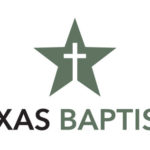Editor’s note: David Currie, former executive director of Texas Baptists Committed, wrote the following response to a column written by Roger Olson, theology and ethics professor at Truett Seminary, originally published in the Waco Tribune-Herald. To read Olson’s Point column, click here.
Roger Olson, the Foy Valentine Professor of Christian Theology and Ethics at Baylor University’s Truett Seminary, has written an article titled “Sorting out the BGCT, the LGBT and Baptist autonomy in general,” published in the Waco Tribune-Herald. In February, Dr. Olson will be our lecturer for the Currie-Strickland Distinguished Lectures in Christian Ethics at Howard Payne University, and I look forward to hearing him, because I appreciate and admire him.
 David CurrieHowever, in this instance, I believe Dr. Olson has missed the mark. Although his remarks on church autonomy and the right of associations and conventions to set limits are accurate historically, I found them lacking an understanding of what Texas Baptists went through and accomplished in the 1990s in fighting off fundamentalist control. I agree with his contention that the churches removed from affiliation with the Baptist General Convention of Texas ultimately will be fine and find another place to go, which I expect will be a closer relationship with Cooperative Baptist Fellowship of Texas.
David CurrieHowever, in this instance, I believe Dr. Olson has missed the mark. Although his remarks on church autonomy and the right of associations and conventions to set limits are accurate historically, I found them lacking an understanding of what Texas Baptists went through and accomplished in the 1990s in fighting off fundamentalist control. I agree with his contention that the churches removed from affiliation with the Baptist General Convention of Texas ultimately will be fine and find another place to go, which I expect will be a closer relationship with Cooperative Baptist Fellowship of Texas.
Ignoring deep relationships
However, his assertion that “when a Baptist church is expelled from one convention or conference, it can easily find others with which to affiliate and have fellowship” casually ignores the deep relationships built over decades of cooperative effort, as well as the contributions these churches have made to Texas Baptist life.
Suppose you have a church that runs 100 in Sunday school. Out of this 100, you probably have 10 strong adult leaders in the church. Now suppose five of those 10 leaders leave the church. One way of looking at that is, big deal, you lost only five out of 100. But in reality, you lost half your leadership, and that is a huge deal for the future of that church.
Now let’s look at the Baptist General Convention of Texas and its 5,000 related churches. Because of the action that is being taken by the convention, Wilshire Baptist Church in Dallas and First Baptist Church in Austin likely will be joined, in a short time, by about 200 churches in departing the convention. Oh, many of those 200 may not “officially” leave, but in reality, they will check out of the BGCT emotionally, financially and in areas of service. You may say, well, even 200 of 5,000 is no big deal, but you would be wrong.
Losing key leadership
When Texas Baptists Committed coordinated saving the BGCT from fundamentalist control, it was with the support of about 400 key churches. With the BGCT’s recent action, it stands likely to lose half of that key leadership group of churches that saved the convention.
Sign up for our weekly edition and get all our headlines in your inbox on Thursdays
When it comes to social issues, I always knew I wasn’t as conservative as most Texas Baptists, but I wanted a place to belong and believed what we had in common—our love for Jesus, our commitment to missions, our support of our Texas Baptist schools, and so on—was more important than our disagreements.
My connection to the BGCT was through the Christian Life Commission. My heroes in Baptist life were Foy Valentine, Jimmy Allen, James Dunn and Phil Strickland. There were at least 200 churches that, in general, felt like I did. They did not insist the BGCT be as progressive on social issues as they were; they simply loved having a place to belong. This emotion was shared beautifully by Pastor Cheryl Kimble from Highland Park Baptist Church in Austin at the convention’s annual meeting and later in the Baptist Standard.
In addition, there were hundreds of individual Texas Baptists, members of fundamentalist or traditional Baptist churches, who felt the same way. They loved their churches, even though their churches were much more conservative than they were. These individuals were very active in Texas Baptists Committed, as well as in BGCT life. It’s that kind of individual who will check out of BGCT life now. That’s just the real world, as Mother used to say.
Missing what’s happening
So, to just say, in effect, “This is how Baptists have always done things, and it is really no big deal; they will find a home elsewhere,” is to miss emotionally what is happening in the BGCT.
The vast majority of churches will never send a messenger to the BGCT. Only a small handful of churches have real BGCT leaders in them. Even in a local church that runs 1,000 in Sunday school, there is only a small leadership core that makes that church what it is, ministry-wise. It’s the same with the BGCT—only a small leadership core makes the BGCT what it is.
What the BGCT has now lost is likely half of its true leadership churches—either officially or in reality—and, within those churches, tomorrow’s BGCT leaders.
I’m 64, and losing me from the BGCT is no big deal. But my sons are 38 and 35. One goes to Wilshire and serves on the Howard Payne University board. He likely no longer will be allowed to serve in any area of Texas Baptist life, and you can multiply him by 1,000. There are at least 1,000 young men and women like my sons—now serving in these key churches that saved the BGCT and have since provided it with leadership—who will be lost to the BGCT forever. Whether you think the convention’s action is right or wrong, you at least must realize the tragedy of this loss.
A big deal
Can it be fixed? I doubt it. There are too many emotions on this issue for it to be resolved at this point. Once some decided this had to happen or they’d leave—“bullying,” I call it—the die was cast.
But please don’t tell me this is not a big deal. It is!
We had something as Texas Baptists that was unique and special. We were conservative but had a place for those not quite so conservative to feel welcome and involved. We had a sense of family that is now gone.
That is a big deal.
David Currie of San Angelo is the former executive director of Texas Baptists Committed.














We seek to connect God’s story and God’s people around the world. To learn more about God’s story, click here.
Send comments and feedback to Eric Black, our editor. For comments to be published, please specify “letter to the editor.” Maximum length for publication is 300 words.